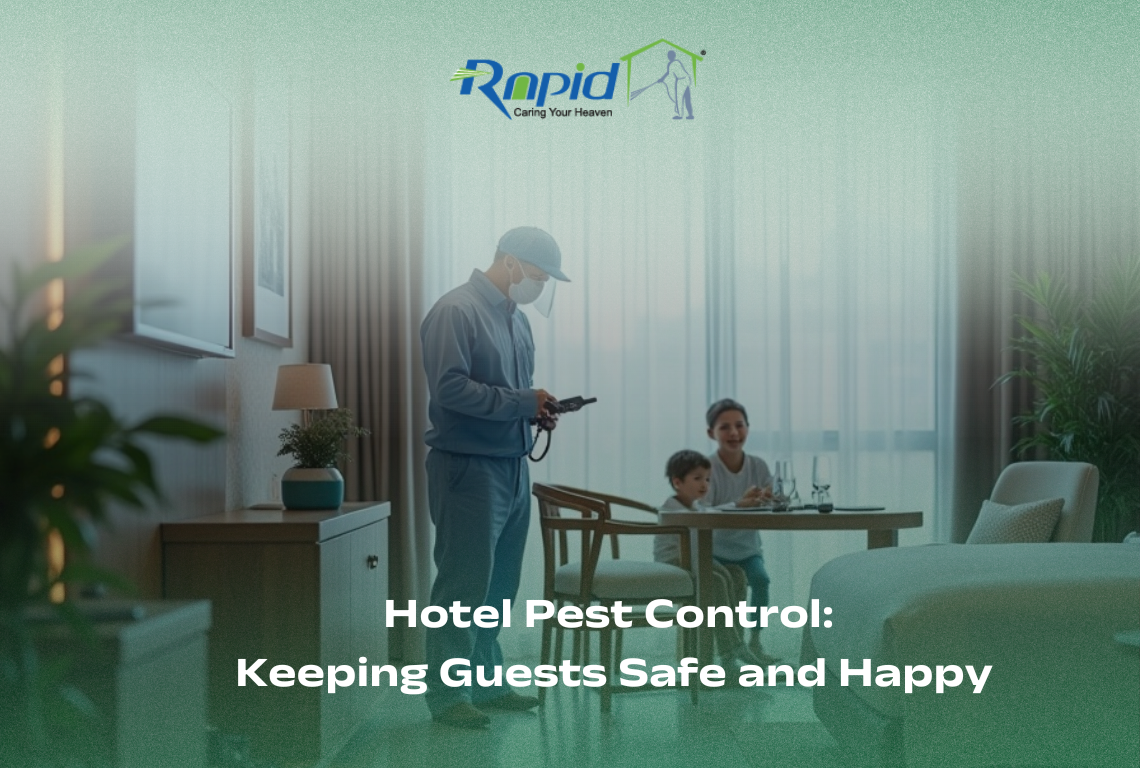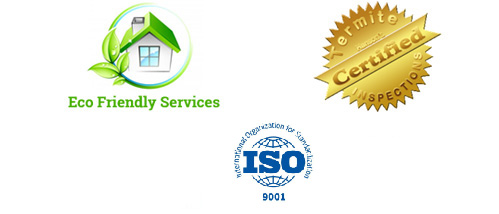
In the hospitality industry, guest satisfaction is everything. A single negative experience—like spotting a cockroach in a bathroom, ants in a suite, or bed bugs in a mattress—can tarnish your hotel’s reputation and drive guests away for good. For hotels, pest control isn’t just about cleanliness; it’s about safeguarding your guests’ comfort, health, and trust. Here’s why proactive pest management is non-negotiable for hotels and how Rapid Pest Control ensures your property remains a pest-free.
Why Pest Control is Critical for Hotels
- Guest Safety and Comfort
Guests expect a pristine, safe environment when they book a stay. Pests like bed bugs, rodents, and cockroaches pose serious health risks:- Bed bugs cause itchy bites and sleepless nights.
- Rodents spread diseases like Salmonella and Hantavirus.
- Cockroaches trigger allergies and asthma.
A single pest sighting can lead to refund demands, negative reviews, and lost bookings.
- Reputation is Everything
In the age of online reviews, word spreads fast. A viral post about pests in your hotel can deter potential guests for months. Studies show that 80% of travellers avoid hotels with pest-related complaints. Proactive pest control helps maintain your 5-star ratings and glowing testimonials. - Compliance with Health Regulations
Hotels must adhere to strict health and safety standards. Health inspectors routinely check for signs of infestations, and failure to comply can result in fines, closures, or legal action. Regular pest control keeps your property audit-ready. - Preventing Property Damage
Pests don’t just annoy guests—they destroy property:- Termites silently eat through wooden structures.
- Rodents chew wires, increasing fire risks.
- Carpet beetles ruin upholstery and linens.
Repairing pest damage is far costlier than preventing it.
- Operational Continuity
An infestation can force partial or full closures for treatment, leading to revenue loss and operational chaos. Regular pest management ensures uninterrupted service.
Common Pests in Hotels (and How They Threaten Your Business)
- Bed Bugs: Hitchhike on luggage, spreading rapidly between rooms.
- Cockroaches: Thrive in kitchens, bathrooms, and laundry areas.
- Rodents: Enter through gaps, contaminating food and damaging infrastructure.
- Ants: Invade pantries and guest rooms, drawn by crumbs and spills.
- Termites: Undermine structural integrity over time.
How to Implement Effective Hotel Pest Control
- Regular Inspections
Schedule routine checks of high-risk areas: guest rooms, kitchens, storage areas, and basements. Early detection prevents minor issues from becoming crises. - Staff Training
Train housekeeping and maintenance teams to:- Spot signs of pests (e.g., droppings, shed insect skins).
- Report issues immediately.
- Maintain hygiene (seal food, dispose of trash properly).
- Eco-Friendly Treatments
Use safe, non-toxic solutions that won’t harm guests or staff. Rapid Pest Control employs discreet, odor-free methods to eliminate pests without disrupting operations. - Seal Entry Points
Fix cracks in walls, gaps around pipes, and faulty window screens to block pests from entering. - Partner with Professionals
DIY fixes are temporary. Trust experts like Rapid Pest Control for tailored solutions:- Bed bug heat treatments.
- Rodent exclusion programs.
- Preventive sprays for ants and cockroaches.
Case Study: A 5-Star Success Story
A luxury hotel in Rajkot noticed a spike in guest complaints about ants in rooms. After partnering with Rapid Pest Control, our team identified entry points near plumbing lines and implemented targeted baiting systems. Within weeks, ant activity dropped by 95%, and the hotel regained its stellar reviews.
Why Choose Rapid Pest Control?
- Emergency Services: Pest problems don’t wait for business hours.
- Discreet Solutions: Treatments designed to minimize guest disruption.
- Guaranteed Results: We don’t just eliminate pests—we prevent their return.
Conclusion: Don’t Let Pests Check In
In hospitality, your guests’ comfort is your currency. Investing in professional pest control isn’t an expense—it’s a commitment to excellence. By partnering with Rapid Pest Control, you protect your guests, your reputation, and your bottom line.
Act now before pests do.
📞 Contact Rapid Pest Control today for a customized hotel pest management plan. Let’s ensure every guest leaves with a smile—not a complaint!

